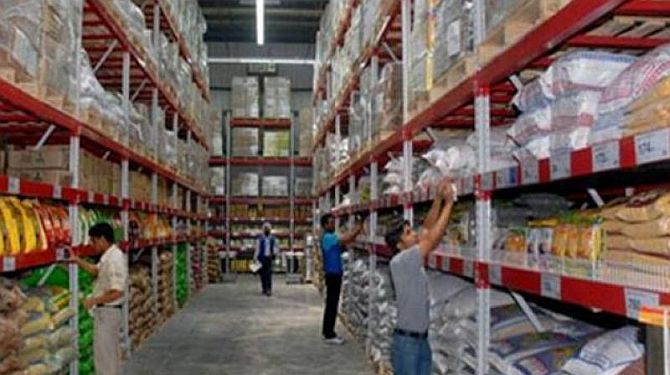JNPT, the country’s largest container port, would soon move into congestion if cargo does not get lifted by importers in the next few days.

The domestic warehousing industry is facing challenges to keep the business going amid the lockdown, even as ports get clogged with cargo.
“Branch warehouses in the eastern part of the country are stranded for approvals from local administration for the past 8-10 days.
"Usually approvals are being given within two days. This is hurting the supply chain,” said Sachin Haritash, founder and chief executive officer at Mavyn.
The technology-driven logistics company that focuses on truckload (more than 800 km) transportation in India has its truckers waiting at these warehouses to unload essential cargo for over a week now.
“These receiving warehouses are meant for essential as well as non-essential goods, and since currently approval is being granted for essential commodities alone, these facilities are stranded for want of specific permissions,” said Haritash.
A receiving warehouse is not a fulfillment centre or a manufacturing unit.
This is also not essential commodity warehouse.
Due to this, approvals are needed for these warehouses during this Covid-19 crisis.
Of the 7,000 truckers registered with Mavyn, only 4,000 truckers are plying across the country carrying essential cargo.
These are largely carrying groceries, essential manufacturing commodities and pharma products.
In the northern part of the country, warehouse functioning is rather smooth.
“Fast-moving consumer goods (FMCG) firms have helped us get the needed permissions for warehouses and also got our vehicles registered.
"Due to this, we are able to supply essentials regularly, though not at the same pace since we are short staffed,” said Sanjay Singh Yadav, operations manager at Delhi-based S M Logistics & Warehousing.
The company has separate warehousing facilities for essential and non-essential commodities, of which the latter now remains shut.
“We have only one-fourth of our staff (including truckers) working at a time since we need to meet the social distancing norm.
"Due to this, we have kept the staff rotational, working only from 10 am to 5 pm as per government guidelines. There is no issue on stocking and distribution,” said Yadav.
S M Logistics is warehousing essential commodities such as baby foods, salt, edible oils, ready-to-eat foods and soups, nutritional diets such as cornflakes and health drinks, among others.
Products of large FMCG companies such as Marico, Adani, Nestlé, and Kellogg Company are being stocked by the warehouses of the company.
Industry officials said though essential commodities warehouses remain open in a few areas in southern India, lack of labour is posing a challenge in functioning.
In several areas close to Chennai, even essential commodities holding warehouses remain shut due to lack of labour.
“All warehouses are shut. No storing facility, only contractors are supplying essentially on daily basis to the market, which is open from 6 am to 2.30 pm.
"There is no storage of any essentials happening at any warehouses in Chennai,” J Jayraj, founder of Zion Associates - consultants to warehouses said.
At the Chennai Port, less than one-third of operations are taking place as just about one to two ships are berthing at the port.
At the same time, the container freight station (CFS) facility at the port is hardly operational since no labour is available.
The Jawaharlal Nehru Port Trust (JNPT), the country’s largest container port, would soon move into congestion if cargo does not get lifted by importers in the next few days.
The port running with only about 30 per cent of truckers to unload cargo from vessels to be taken to CFSs is finding it increasingly tough to carry out the activity as importers remain absent to lift the material.
“Our truckers are making double trips due to shortage, but congestion at CFSs is going up since no cargo is moving out from these stations.
"By next week, we will move into a difficult situation if cargo is not lifted by importers,” said Umesh Grover, secretary general at Container Freight Station Association of India (CFSAI).
JNPT has 35 CFS players and has managed to evacuate around 13,000-14,000 TEUs in the past few days.
“The direct port delivery (DPD) service has gone for a toss as no importer is around to pick up the cargo.
"Had the CFSs not been there, it would have been a horrible situation for the port,” said Grover.
As part of ease of doing business, the government has been laying thrust on DPD service for a while now, which eliminates usage of CFSs to allow cargo delivery faster and cheaper.
Currently, around 53 per cent of total container cargo handled at JNPT is delivered via DPD service.
A CFS is a custom-bonded warehouse where a number goods or products are stored to be shipped together in one or more containers.
Photograph: PTI Photo










